Companies are an important pillar of our economy because they create jobs, prosperity and growth. It is the task of politics to support companies in adapting to a changing environment - for example, to promote research and development.
Companies and Markets

About the topic
The structure of the German and international economy is constantly changing. Companies are challenged to adapt to new realities brought about by digitization, for example. But they are also driving innovation and thus actively shaping change. Politics can support companies in this task by setting the framework conditions favorably. This includes, for example, adjusting the rules for competition, reducing bureaucracy and always maintaining a balance between established companies, such as traditional SMEs, and startups that enrich Germany as a business location with new business models.


A Macroeconomic Analysis of Wage-Price Spirals
The subject of this Analysis is the forms that wage-price spirals can take and how they influence macroeconomic stability and inflationary trends in Germany.
Thomas Obst / Maximilian Stockhausen IW
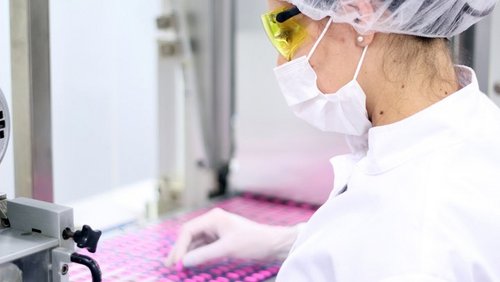
Pharmaceutical industry: Increasing pressure on the labor market
The shortage of skilled workers poses significant challenges for pharmaceutical companies in Germany and is expected to become increasingly problematic in the context of demographic changes. Concerning Germany's positioning in the international competition ...
Lydia Malin / Simon Schumacher IW

Corporate Insolvencies on the Increase
After a prolonged decline, the number of corporate insolvencies has begun to rise again. The slight increase in 2022 could be interpreted as a step towards normalisation after the sharp drop experienced during the 2020/21 Covid19 pandemic.
Klaus-Heiner Röhl / Gerit Vogt IW
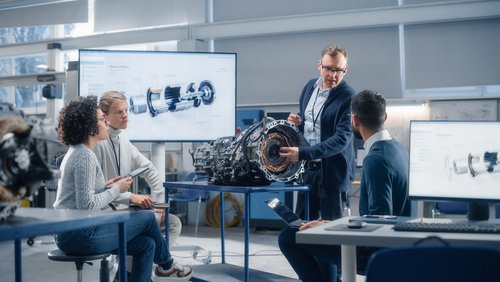
The Transformation of the Automotive Industry: An International Comparison of Germany's Innovation Performance
The automotive industry is undergoing a comprehensive technological transformation that is challenging established value chains. Making sure that domestic research helps to shape this ongoing transformation is therefore an important task for countries with a ...
Enno Kohlisch / Oliver Koppel / Thomas Puls IW
Our Experts

Dr. Vera Demary
Head of Digitalisation and Climate Action Research Unit
Tel: +49 221 4981-749 Mail: vera.demary@iwkoeln.de Vera Demary
Barbara Engels
Senior Economist for Sustainable Digitalisation
Tel: +49 221 4981-703 Mail: engels@iwkoeln.de Barbara Engels @BarEngels
Prof. Dr. Michael Grömling
Head of Macroeconomic and the Business Cycle Research Unit
Tel: +49 221 4981-776 Mail: groemling@iwkoeln.de
Louisa Marie Kürten
Consultant for Innovation and Change
Tel: +49 221 4981-785 Mail: kuerten@iwkoeln.de @Louisa_Kuerten
Dr. Klaus-Heiner Röhl
Senior Economist for SME Policy and Regional Policy
Tel: +49 30 27877-103 Mail: roehl@iwkoeln.de Klaus-Heiner Röhl
Dr. Christian Rusche
Senior Economist for Competition and Structural Change
Tel: +49 221 4981-412 Mail: rusche@iwkoeln.de
Prof. Dr. Michael Voigtländer
Head of International Economic Policy, Financial and Real Estate Markets Research Unit
Tel: +49 221 4981-741 Mail: voigtlaender@iwkoeln.de Michael Voigtländer @mvoigtlaenderAll news
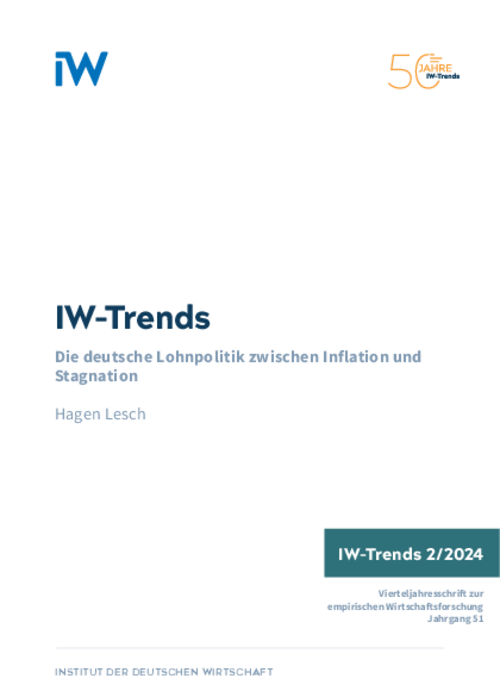
German Wage Policy between Inflation and Stagnation: Are Conflicts with the Aims of Monetary Policy Looming?
After the economic and financial crisis of 2008/9, the German labour market soon began to recover, creating scope for a comparatively expansive wage policy.
Hagen Lesch IW
Chapter 3: Regional economic theories as drivers of the EU Cohesion Policy
This chapter reviews the regional economic theories, schools of thought and policy narratives used to motivate the EU Cohesion Policy.
Nicola Francesco Dotti* / Ugo Fratesi* / Christian Oberst IW
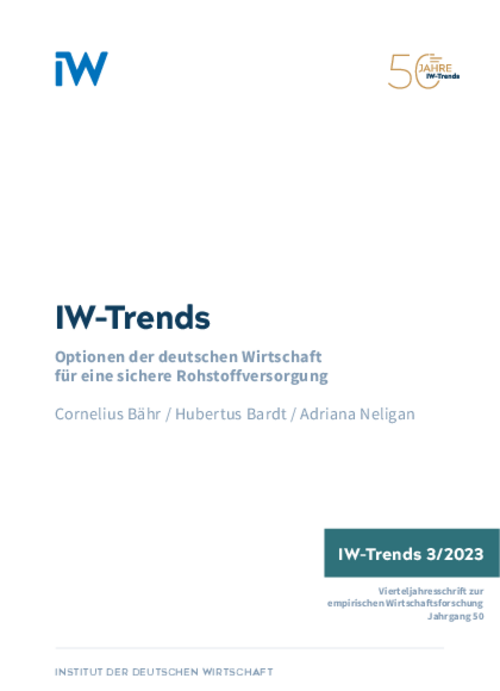
German Industry's Options for a Secure Supply of Raw Materials
In recent years German industry has seen a rise in the risks attached to its procurement of raw materials.
Cornelius Bähr / Hubertus Bardt / Adriana Neligan IW

How Much Do Infrastructure Problems Affect Businesses in Germany? Results of IW Surveys
In recent months, closed motorways, congested seaports and cancelled freight trains have combined with already high energy prices and material shortages to cause exasperation in Germany’s business community.
Thomas Puls / Edgar Schmitz IW
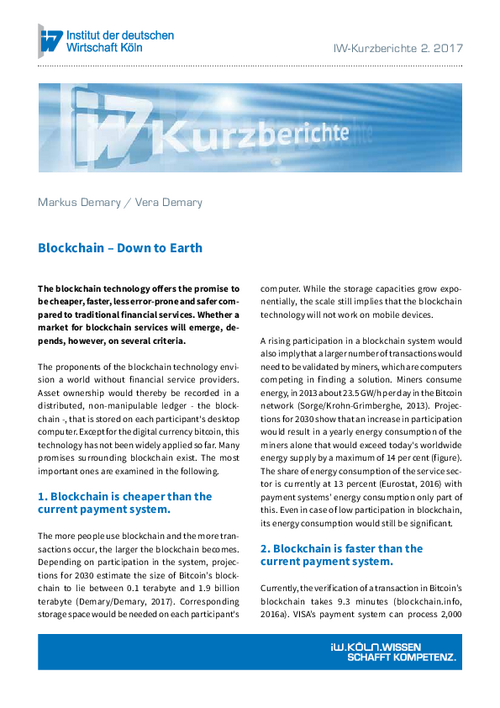
Blockchain: Down to Earth
The blockchain technology offers the promise to be cheaper, faster, less error-prone and safer compared to traditional financial services. Whether a market for blockchain services will emerge, depends, however, on several criteria.
Markus Demary / Vera Demary IW
Your search returned an incorrect status. You may have selected too many filters. You can jump back to your previous selection to adjust your search.
With our new newsletters on the following topics you no longer have an IW publication.
We send out our topic-specific newsletters every month.
Register here
With our new newsletters on the following topics you no longer have an IW publication.


